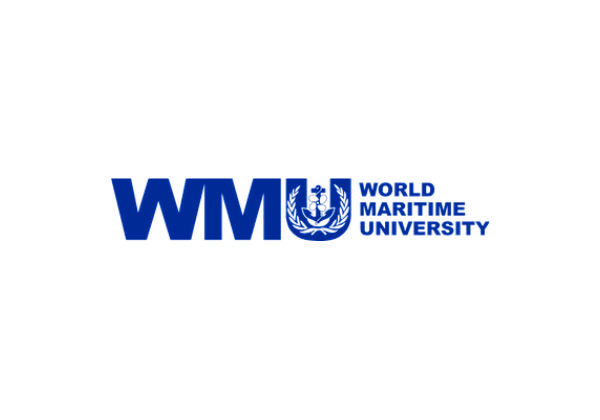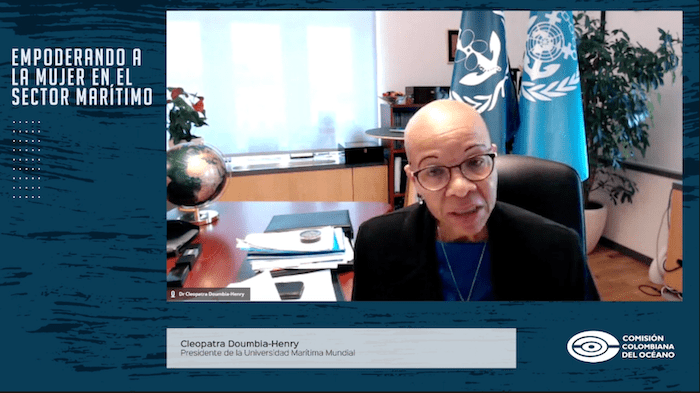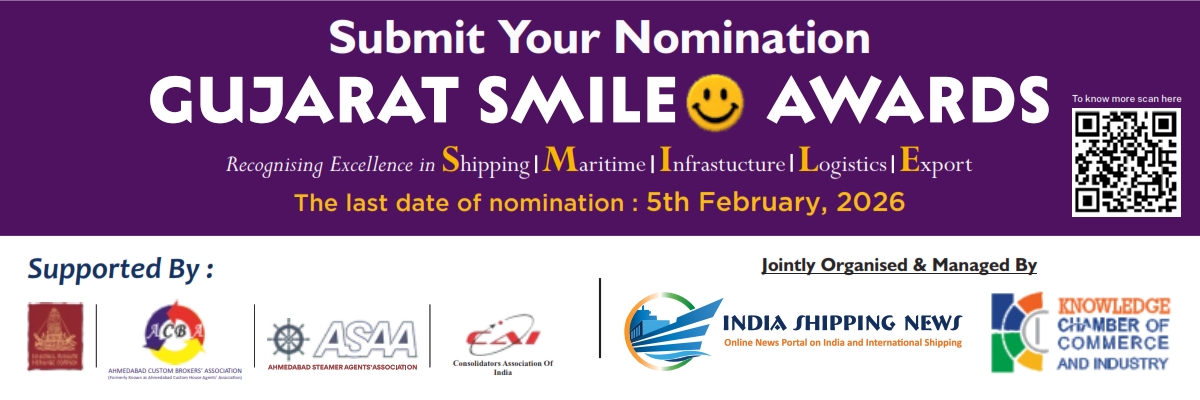
WMU contributes to empowering Women in the Maritime Sector – Colombia

SWEDEN : On 27 August, Dr Cleopatra Doumbia-Henry, President of the World Maritime University (WMU), was the keynote speaker for Colombia’s virtual conference on ‘Empowering Women in the Maritime Sector.‘ The conference was organized by the Colombian Ocean Commission, the Naval School of Cadets “Almirante Padilla” and WISTA Colombia.
In her remarks, President Doumbia-Henry noted that gender disparities affect our entire planet and the promotion of gender equality and women’s empowerment are at the top of agendas worldwide. Gender and empowerment are a goal of the United Nations and its specialized agencies, and are also included in the UN Sustainable Development Goal (UN SDGs) 5: Achieve Gender Equality and Empower all women and girls.

In the maritime domain, President Doumbia-Henry highlighted the work of the International Maritime Organization (IMO) and their Women in Development Programme that was launched over 30 years ago to expand women’s roles in the maritime sector. She reiterated WMU’s commitment to supporting the achievement of the UN SDGs, including Goal 5, and highlighted the 2019 World Maritime Day theme of Empowering Women in the Maritime Community that provided an opportunity to raise awareness of the importance of gender equality, and to highlight the global contribution of women to the maritime sector. In the same year, taking that theme as a title, WMU hosted the Third International Women’s Conference on Empowering Women in the Maritime Community. Over 350 participants from more than 70 countries adopted conclusions identifying 17 actions that could be taken to advance gender balance in the maritime and oceans sectors.
In the last 27 years, the percentage of women seafarers has remained as low as one to two percent. Regarding ocean science, President Doumbia-Henry shared UNESCO’s 2017 Global Ocean Science Report (GOSR) figure that found women make up 38% of ocean scientists, which is 10% higher than science in general. However, she noted, there is a lack of gender-disaggregated data on ocean science.
“This is where we stand today and that is where we, at WMU, have an opportunity to play an active role in the difficult mission of actively empowering women not only in the maritime field but in the ocean field as well,” said President Doumbia-Henry. She noted that WMU’s mandate has been expanded to include the oceans and the gender perspective in its mission and strategic plans and that WMU has actively pursued scholarships for women as well as included gender in the University’s ocean research agenda.
President Doumbia-Henry emphasized the importance of education in affecting change. WMU recorded female student representation at 3% in 1983. Today, this number has significantly improved to roughly one third annually in the Malmö-based MSc programme since 2015. WMU’s MSc programmes taught in Shanghai and Dalian, China have both achieved gender parity since 2019 with both programmes reaching a record 50/50 male-female student ratio.
President Doumbia-Henry emphasized that partnership and collaboration are the key in achieving a critical mass of female representation in the maritime community. “We need to do more and we need the collaboration of national (and other) stakeholders to increase the number of women joining the maritime and ocean industries,” she said. She encouraged higher education institutions to work toward addressing gender inequities and for donors to make scholarships available to students in developing countries, some specifically for women, to study all aspects of the ocean.
She concluded saying, “So many more doors have opened in recent years for all of us women. The question is: are we ready to take on the challenge? Let’s get these role models! It is possible.”
Source : WMU


